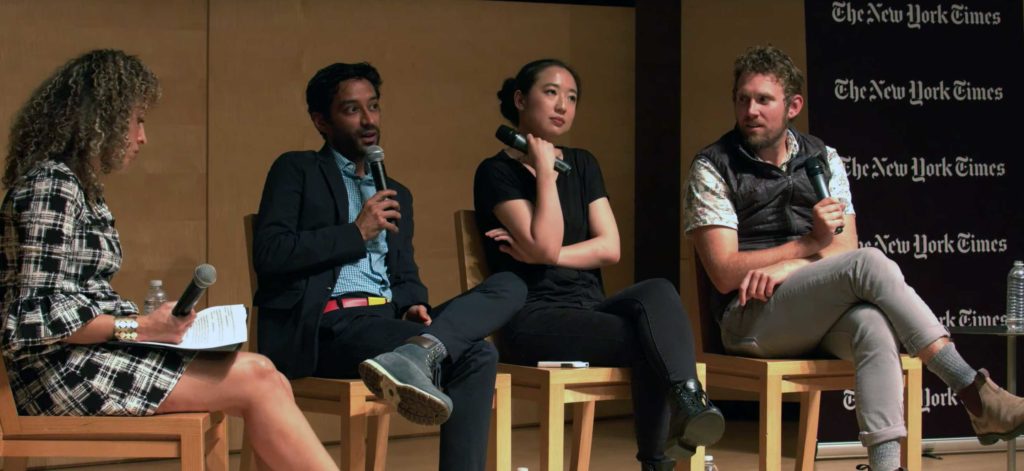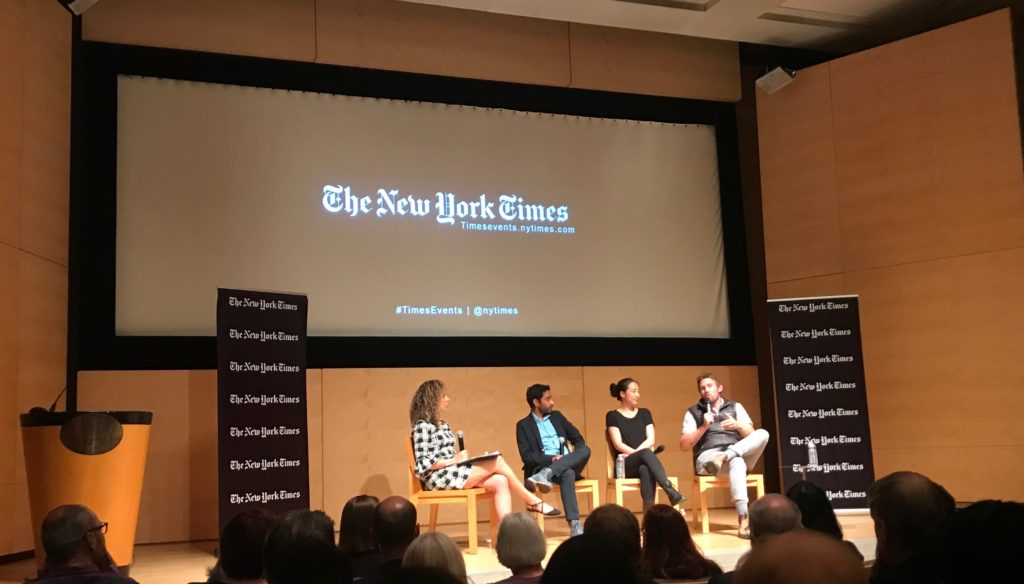“You care more about privacy than you think you do.”
Charlie Warzel of the New York Times Privacy Project
This quote set the tone for an insightful night of discussion at the San Francisco Public Library, where the New York Times hosted a panel of privacy experts to talk about Why You Should Care About Privacy. The panel included Charlie Warzel, Sarah Jeong, and Farhad Manjoo, all writers for the NYT. We’re recapping the event and highlighting three takeaways about your personal privacy that you need to know.
Kicking off the night, moderator Jenee Desmond Harris asked the panelists how concerned they were about their personal privacy on a scale of 1–10. All three panelists offered an alarming figure of eight or higher and shared that their concerns had recently intensified due to their work on the New York Times’ Privacy Project. Jenee also polled the audience on their comfort with privacy practices by companies, confirming that more than 95% in attendance were deeply uncomfortable with current privacy invasions, including targeted advertising practices, facial recognition scanning, and data sold between companies.

Insight #1: Consumers can protect themselves
The first valuable insight is how consumers can protect their privacy. Farhad and Sarah shared that they submit forms and requests annually to scrub their physical address from Google, other search engines, and external websites. Unfortunately, there’s no way to completely remove your personal data from the internet, but all three panelists said that there’s hope for better deletion and accessibility with the upcoming California Consumer Privacy Act (CCPA), January 1st.
The discussion Wednesday night also keyed in on the current state of privacy and how companies collect and use personal data.
Charlie stated that “Companies feel like they can do it under the surface,” referring to the processing of data. He detailed how companies get access to user data, saying “[Companies] tell you the great things available with their technology and fail to mention the privacy tradeoff that comes with them.”
Farhad followed up with why company practices regarding privacy are problematic for users, and how the data industry has remained unregulated for over a decade. Consumers have been conditioned to accept the terms as they are presented and often don’t understand the privacy risks associated with providing personal information to companies.
Farhad called for change, “We should regulate their practices, but we don’t yet have an FDA for Alexa”.

Insight #2: Collective action or regulation is required to change current privacy practices
The takeaway here is that regulation or collective action is necessary for consumers to regain control of their data. Panelists mentioned efforts by San Francisco with a facial recognition ban, California’s upcoming privacy act, and Senate bills in the works to change current practices.
FaceApp, Equifax, Cambridge Analytica, and other well-known privacy issues were also highlighted in the discussion. The Panelists explained that large-scale issues have led to an increased awareness of consumer privacy.
Charlie said privacy scandals have spurred a “transitional period,” where consumers demand greater privacy, and government/businesses must react. He also related that “people are concerned but don’t know where to focus their energy yet.” Charlie expects that privacy demands and concerns will continue to rise rapidly as consumers learn more about the use of their personal data, mentioning that apps and software are often integrated with dozens of other systems or companies with which the data is shared.
Insight #3: As users push for increased privacy, expect delays in business privacy solutions
The final insight ties into how consumers can push for better privacy practices and why businesses may be delayed in implementing solutions. An example of where users can take control is by opting out of data collection and processing by websites and adtech. However, there is a catch-22 with ads uninfluenced by data, where consumers end up with poorly targeted ads that provide no value to the consumer or the site they’re featured on.
Privacy is a balancing act, as the processing and sharing of personal data is currently an integral part of many businesses. In terms of solving the problem, Farhad remarked, “There’s a sense of hopelessness with these big companies… Equifax failed at their one job,” referring to the data breach that exposed the personal data of millions of users.
Although the panel focused on a number of issues concerning consumer privacy, Sarah Jeong ended the panel on an optimistic note, informing the audience of recent wins for privacy including San Francisco’s facial recognition ban, the CCPA, Nevada’s Privacy Law, and many more legal regulation drafts in process in America. With regulations in place, businesses will be forced to find solutions to maintain compliance and provide their users with the privacy they demand.
Watch the full panel discussion here.
Do you work for a business that handles user data? Learn how DataGrail can help achieve and maintain compliance with the CCPA, GDPR, and other privacy regulation by scheduling a demo today.

